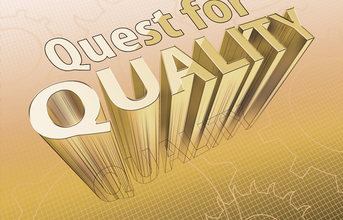
Indian manufacturing has certainly evolved over the years; more so after the entry various international players post liberalisation. One of the remarkable improvements has been on the quality front with more and more domestic players going global and adhering to higher standards than they were used to. The fact that Indian can boast of more than 20 Deming Prize winners across industries is evident enough of the country's enhanced manufacturing practices.
With a growing focus on the quality aspect, today, more and more Indian companies are adopting a wide range of quality improvement programs as well as methods such as Lean, Six Sigma, ISO Standards, Total Quality Management (TQM), World Class Manufacturing (WCM) and so on. Many companies also prefer a combination or a customised version of these methodologies.
This enables them to cater to increasingly demanding domestic as well as to the exports market. For example, Shakti Pumps (India) Ltd has its products certified by ISI for quality standards, BEE for energy efficiency and UL for conforming to European and US safety norms. This - believes Dinesh Patidar, Chairman & Managing Director of the company - provides it access to global markets to more than 100 countries across the world.
"Our Quality Assurance department monitors each product and ensures that benchmark quality standards are practiced throughout the process, right from the receipt of raw material to the finished goods," he adds. Shakti Pumps has adopted a combination of relevant international quality control systems and processes and the company believes in continuous improvement.
"The proven standards and practices are definitely making a positive impact on the sales of our products. They are technically competitive and maintain an edge over other products available in the market. Shakti Pumps products are thus known for their consistency in quality, durability and efficiency," Patidar says.
Steelcast Ltd follows the ISO 9001-2008 Quality Management System to ensure the quality of its product. Chetan Tamboli, Chairman & MD of the firm says that this system has a focus on voice of the customer and customer satisfaction, leadership, involvement of people, continuous improvement and data based decision making. "This is a system oriented process that promotes mutually beneficial supplier relationship," Tamboli says.


























